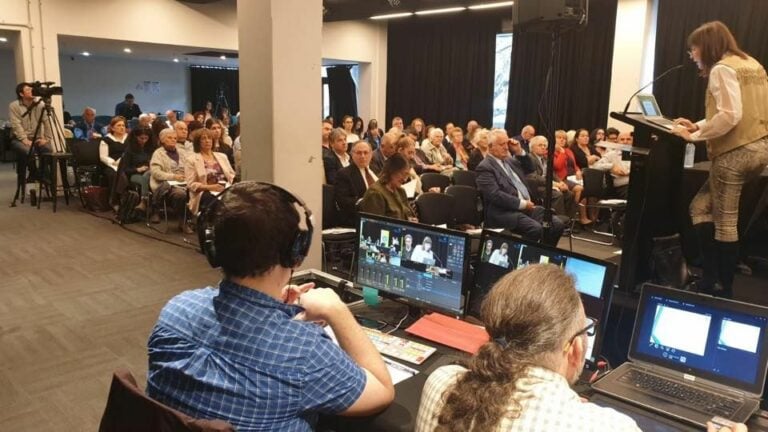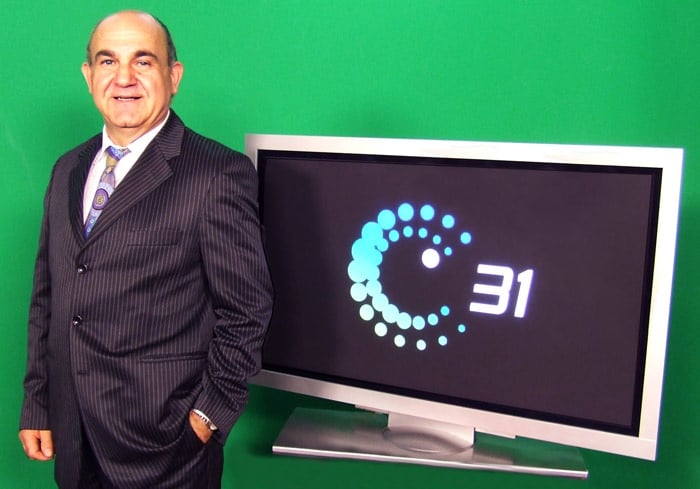Community television stations in Melbourne and Adelaide stay rolling for three more years

Some weight has come off the shoulders of community broadcasters C31 Melbourne and C44 Adelaidean after an amendment to broadcast legislation was passed in the Australian Senate and confirmed in the House of Representatives yesterday, providing an extension of three more years of free to air broadcast access.
The broadcasters will be staying put until at least 30 June, 2024.
In a statement released by C31 Melbourne, General Manager Shane Dunlop reiterated the importance of keeping community television alive.
“We are glad that common sense has prevailed, and we look forward to the next three years, continuing our 27-year tradition of providing an accessible, vibrant, and important service to Melbourne’s diverse communities and beyond,” he said.
The station has been broadcasting Greek Orthodox Easter services for some years now and was particularly important during last year’s strict lockdown.

Members and organisations of Melbourne’s Greek-Australian community expressed their support for C31, having had the opportunity to broadcast their own content on the free-to-air channel.
The Greek Community of Melbourne noted the importance of having diverse voices heard in the media.
“Channel 31 has been a great supporter of the Greek Community of Melbourne and has been ever present at our events. It provides us with an important media pathway to capture and broadcast our events on video. It is important to keep community television running because it allows our stories to be told. It provides access and a voice that is not a caricature of ourselves,” the organisation told Neos Kosmos.
Director of comedy group Aunty Donna and filmmaker, Max Miller, explained how the first filmed content the group ever produced was for C31. The comedy group went on to score a deal with streaming service Netflix and made it to the top of Australian viewing charts.
“It provides a platform for people to actually make things, because otherwise you’re just making content for yourself. Channel 31 gives you the experience of working on a proper show that’s going to be aired on TV. It legitimises what you’re doing and that kind of experience is so hard to get when you’re starting out,” he told Neos Kosmos.
“For us it was so crucial. We didn’t do filmed comedy content before that, it was just a live act. It kickstarted a whole big thing for us and if Channel 31 didn’t exist then I don’t know what would’ve happened.”

C31 Melbourne echoed similar sentiments for local art in their statement.
“This decision ensures that Community Television’s valuable contribution to the wider arts industry can continue until at least 30 June 2024 and assists the sector in building its financial and digital capacity to continue broadcasting to audiences around the country.”
C31 Melbourne Chair Mike Zafiropoulos AM went on to thank all those who have come out in support for the community channel.
“The C31 board would like to acknowledge the efforts of our wonderful staff, producers and program makers over the last few months. We have also been overwhelmed by the showing of public support and are heartened by the collective resolve to fight for a positive outcome for Community Television in Victoria. Thank you,” he said.
Community television free-to-air broadcast licences have been under threat since 2014, when former Minister for Communications Malcolm Turnbull announced that community television stations around Australia would need to operate online-only from the end of 2015.
Since then, a series of last-minute licence extensions have kept the two channels on-air, as they operate under increasingly difficult circumstances. Others have not been so lucky, with C31 in Brisbane, TVS in Sydney and recently WTV Perth all folding under the pressures of licence uncertainty.
In a bid to overhaul television broadcasting in Australia the Federal Government issued the Media Reform Green Paper: Modernising television regulation in Australia in November 2020.
The paper proposed a restack of existing broadcast spectrum to enable efficiencies and facilitate the auction of surplus spectrum to the telecommunications industry. Community television licencees were not included in the reforms.










Σχόλια Facebook